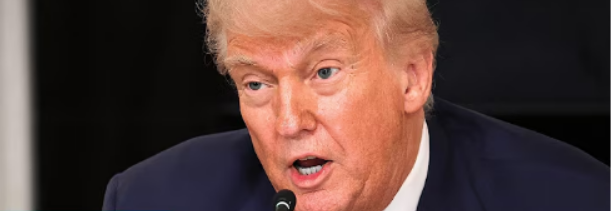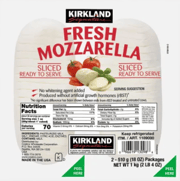Trump unveils plan to open 401(k) to private investment—experts weigh in on risks and rewards
- Replies 0
Something is stirring behind the scenes that could have long-term consequences for retirement savers.
While the details remain under wraps, the core idea has sparked excitement—and a fair amount of skepticism.
Many are wondering whether this could really change the way average Americans invest their nest eggs.
Former President Donald Trump is reportedly considering an executive order that would open 401(k) plans to private market investments.
That includes assets like private equity, venture capital, real estate, and hedge funds—sectors that have traditionally been off-limits to everyday investors.
If implemented, this shift could give millions of Americans access to higher-growth opportunities once reserved for the ultra-wealthy.
The plan is expected to involve the Labor Department and SEC developing new guidance for retirement plan administrators. Supporters of the move say it’s long overdue.
“Expanding access to alternative investments in 401(k) retirement plans will provide more Americans with the diversification and investment options needed to build wealth and save for successful retirement,” said Bryan Corbett, president and CEO of the Managed Funds Association.
Advocates believe that allowing workers to tap into these markets could generate larger returns over time.
Given rising living costs and market volatility, that’s a compelling pitch for many nearing or in retirement.
But the proposal has also raised serious concerns among plan administrators and legal experts. Unlike traditional investments, private market assets are harder to sell, less transparent, and come with steeper fees.
Also read: The surprising truth about borrowing from your 401(k)—what you need to know to avoid financial disaster
That could make it tough for retirees to access their money when they need it—and difficult for the average investor to fully understand what they’re buying into.
This isn’t the first time this idea has been floated. During Trump’s first term, the Department of Labor issued guidance allowing limited private equity exposure in some retirement plans.
That guidance was later rolled back by the Biden administration, citing concerns about risk, fairness, and fiduciary responsibility. Now, with Trump eyeing a return to office, the private equity lobby sees a second chance to push the idea forward.
Private investments aren’t just more volatile—they can be legally complex as well. Unlike stocks and bonds, these options often come with multi-year lockups, meaning your money may be inaccessible for long stretches.
Fees can also be significantly higher, with both management and performance costs eating into gains. If things go wrong, plan administrators could face lawsuits from participants who believe they were misled or poorly informed.
Still, some financial professionals see opportunity—if the rollout is handled with transparency and caution.
They argue that access to private markets could help level the playing field, allowing regular savers to benefit from the same tools as institutional investors.
But others say those same savers may not have the experience or support needed to navigate the risks. Much will depend on the fine print of any policy that emerges from the White House.
Also read: Are You on Track for Retirement? See How Your 401(k) Stacks Up Against the Average for 65+ Retirees!
If you’re nearing retirement or already drawing from your 401(k), this development could affect you directly. More investment options might sound like a win, but more complexity means greater responsibility to ask the right questions.
Experts urge consumers to talk with their advisors and read all documentation carefully before making changes. As always, diversification and risk tolerance should guide your decisions—not headlines or hype.
Whether this proposal moves forward remains to be seen. What’s clear is that it represents a major philosophical shift in how retirement plans are structured in America.
For many, the idea of chasing higher returns is tempting—but the tradeoff could be more volatility and less access. If you rely on your 401(k) for security, this is a policy worth watching very closely.
Read next: $1.7 trillion in forgotten 401(k)s is just sitting there—could some of it be yours?

Do you think 401k accounts should be allowed to invest in private markets? Would you be comfortable taking on more risk if it meant higher potential growth? Have you had experience with private equity or real estate funds? Share your thoughts and questions in the comments below—let’s discuss how this could impact our collective retirement future.
While the details remain under wraps, the core idea has sparked excitement—and a fair amount of skepticism.
Many are wondering whether this could really change the way average Americans invest their nest eggs.
Former President Donald Trump is reportedly considering an executive order that would open 401(k) plans to private market investments.
That includes assets like private equity, venture capital, real estate, and hedge funds—sectors that have traditionally been off-limits to everyday investors.
If implemented, this shift could give millions of Americans access to higher-growth opportunities once reserved for the ultra-wealthy.
The plan is expected to involve the Labor Department and SEC developing new guidance for retirement plan administrators. Supporters of the move say it’s long overdue.
“Expanding access to alternative investments in 401(k) retirement plans will provide more Americans with the diversification and investment options needed to build wealth and save for successful retirement,” said Bryan Corbett, president and CEO of the Managed Funds Association.
Advocates believe that allowing workers to tap into these markets could generate larger returns over time.
Given rising living costs and market volatility, that’s a compelling pitch for many nearing or in retirement.
But the proposal has also raised serious concerns among plan administrators and legal experts. Unlike traditional investments, private market assets are harder to sell, less transparent, and come with steeper fees.
Also read: The surprising truth about borrowing from your 401(k)—what you need to know to avoid financial disaster
That could make it tough for retirees to access their money when they need it—and difficult for the average investor to fully understand what they’re buying into.
This isn’t the first time this idea has been floated. During Trump’s first term, the Department of Labor issued guidance allowing limited private equity exposure in some retirement plans.
That guidance was later rolled back by the Biden administration, citing concerns about risk, fairness, and fiduciary responsibility. Now, with Trump eyeing a return to office, the private equity lobby sees a second chance to push the idea forward.
Private investments aren’t just more volatile—they can be legally complex as well. Unlike stocks and bonds, these options often come with multi-year lockups, meaning your money may be inaccessible for long stretches.
Fees can also be significantly higher, with both management and performance costs eating into gains. If things go wrong, plan administrators could face lawsuits from participants who believe they were misled or poorly informed.
Still, some financial professionals see opportunity—if the rollout is handled with transparency and caution.
They argue that access to private markets could help level the playing field, allowing regular savers to benefit from the same tools as institutional investors.
But others say those same savers may not have the experience or support needed to navigate the risks. Much will depend on the fine print of any policy that emerges from the White House.
Also read: Are You on Track for Retirement? See How Your 401(k) Stacks Up Against the Average for 65+ Retirees!
If you’re nearing retirement or already drawing from your 401(k), this development could affect you directly. More investment options might sound like a win, but more complexity means greater responsibility to ask the right questions.
Experts urge consumers to talk with their advisors and read all documentation carefully before making changes. As always, diversification and risk tolerance should guide your decisions—not headlines or hype.
Whether this proposal moves forward remains to be seen. What’s clear is that it represents a major philosophical shift in how retirement plans are structured in America.
For many, the idea of chasing higher returns is tempting—but the tradeoff could be more volatility and less access. If you rely on your 401(k) for security, this is a policy worth watching very closely.
Read next: $1.7 trillion in forgotten 401(k)s is just sitting there—could some of it be yours?
Key Takeaways
- Donald Trump is reportedly considering an executive order that would permit 401(k) retirement plans to invest in private market assets, including private equity and hedge funds.
- Supporters say the change could allow greater diversification and growth, but critics warn it introduces significant risks like higher fees, reduced liquidity, and less transparency.
- The plan would build on guidance from Trump’s previous term and reverse rollbacks made during the Biden administration.
- Plan administrators and legal experts are concerned about potential financial losses and legal exposure if these complex investments don’t perform well.
Last edited:







